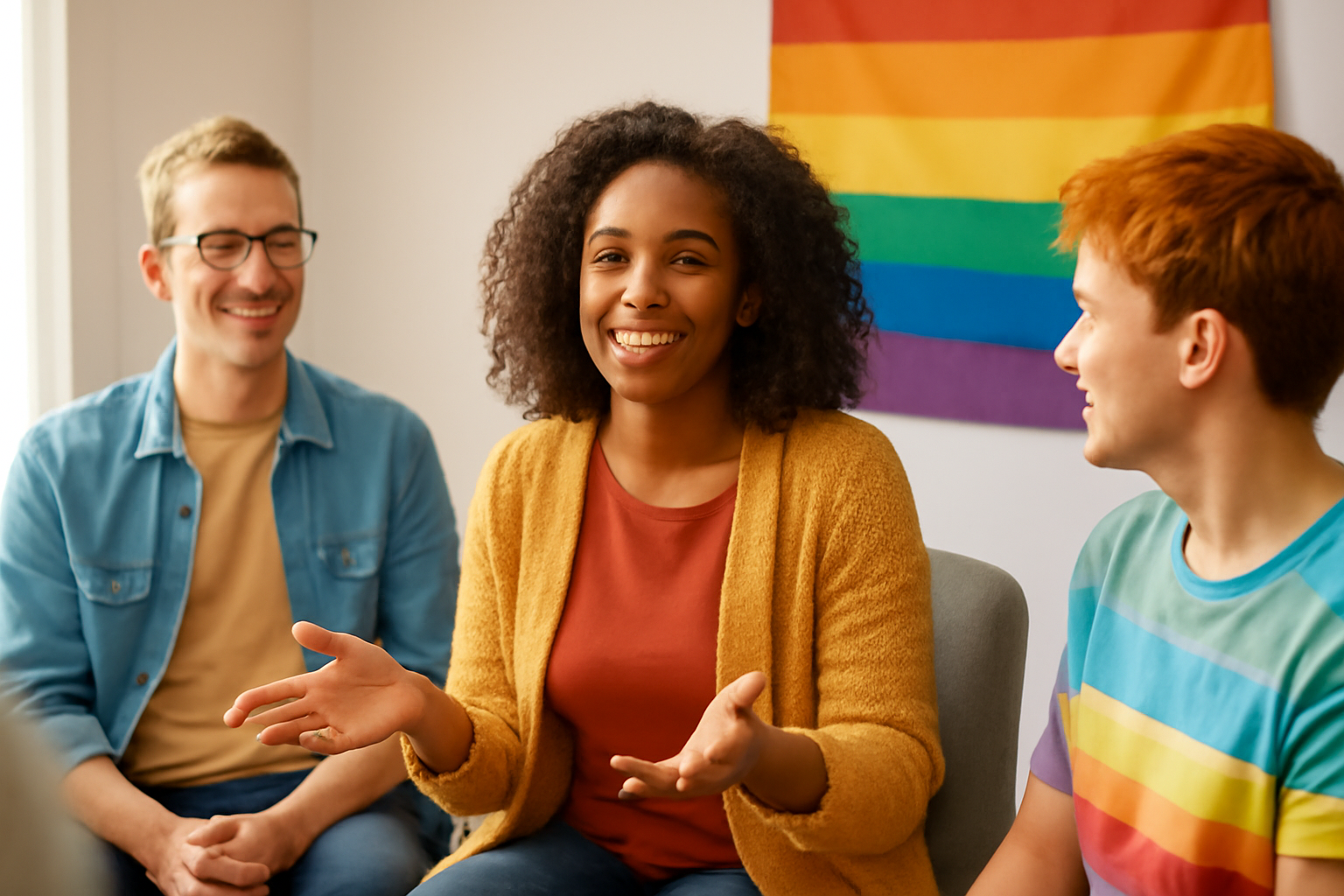
Creating a supportive environment for the LGBTQ+ community is essential to fostering inclusivity and empowerment. Supporting one another and building strong networks can make a significant impact. One way to contribute to this effort is by training to become a Support Group Facilitator. These facilitators play a crucial role in providing guidance and a safe space for members of the queer community to express themselves and seek support.
Training Opportunity
If you have a passion for helping others and wish to give back to the LGBTQ+ community, consider attending a "Support Group Facilitator Training." This event will take place on Saturday, March 29 at 1 p.m. on Zoom. Participating in this training is a step towards becoming a certified Support Group Facilitator, which is a rewarding role within the community centers like the DC Center for the LGBT Community.
The training is designed to equip you with the essential skills and knowledge required to effectively facilitate support groups. These groups are vital as they provide a platform for individuals to share their experiences, challenges, and triumphs in a confidential and supportive environment. Facilitators ensure that group discussions are productive and respectful, fostering a sense of belonging and mutual support among participants.
What to Expect from the Training
During the training, you will learn about the ethics and best practices of facilitating support groups. It's an opportunity to address concerns and challenges that may arise in group settings. Existing facilitators are also encouraged to attend to refresh their skills and share insights with newcomers. The collaborative nature of the training allows for an exchange of ideas and solutions, making it a valuable experience for all involved.
Support group facilitation covers various aspects, including maintaining confidentiality, managing group dynamics, and fostering an inclusive and non-judgmental atmosphere. As a facilitator, you will learn how to guide conversations, encourage participation, and handle sensitive topics with care. These skills are not only beneficial for facilitating support groups but can also be applied in various professional and personal contexts.
Getting Involved
Becoming a Support Group Facilitator is more than just volunteering; it's about making a meaningful contribution to the community. By creating spaces where individuals feel heard and understood, facilitators help build a stronger, more resilient queer community. These groups can address a wide range of topics, from coming-out experiences to mental health support, providing a lifeline for many who may feel isolated or misunderstood.
To RSVP for the training, visit the website of the hosting community center and sign up. Engaging in this training not only enhances your skills but also strengthens your connection to the LGBTQ+ community. It's a chance to meet like-minded individuals who are passionate about advocacy and support.
Beyond Facilitation: Other Ways to Give Back
While being a Support Group Facilitator is a significant way to contribute, there are numerous other ways to support the LGBTQ+ community. Volunteering at local LGBTQ+ events, participating in advocacy work, and donating to LGBTQ+ charities are just a few examples. Each act of support, no matter how small, contributes to the overall well-being of the community.
Engagement in community-building activities not only benefits others but also enriches your own life. It provides a sense of purpose and fulfillment, knowing that you are part of a movement that promotes equality and acceptance.
Conclusion
Giving back to the queer community is a rewarding endeavor that strengthens bonds and promotes inclusivity. Whether through facilitating support groups, volunteering, or advocating for LGBTQ+ rights, every effort counts. Together, we can create a supportive and accepting environment where everyone can thrive.
Sign up for the Support Group Facilitator Training today and take the first step towards making a difference.
Related Posts
Trump Inaugurated as 47th President Amid Concerns for LGBTQ+ Community
Donald Trump has been sworn in as President once again, marking his second term as America's 47th leader. This significant event in U.S. politics promises profound impacts, especially concerning LGBTQ+ rights. Taking office: promises and challenges Amidst a harsh winter storm, Trump took his oath indoors at U.S. Capitol on January 20. Alongside him, Vice-President JD Vance also stepped up, both [...]
Daniel Craig's "Queer" Overlooked by BAFTA: A Surprising Omission
Daniel Craig's film, Queer, snubbed by BAFTAs despite rave reviews In a surprising twist, Daniel Craig's newest film, *Queer*, failed completely on BAFTA's nomination list this year. It's a head-scratcher, considering how critics have sung its praises and Craig delivered such a standout performance. Yet, not a single nod from BAFTA. Go figure. fans and critics baffled by BAFTA snub The exclusio [...]
Generations of LGBTQ+ Athletes: From Past Challenges to Modern Triumphs
In a captivating display that brought together voices across generations, two gay athletes from different times came together on a TV show, sharing their journeys and thoughts on LGBTQ+ representation in sports. This insightful program shed light on how inclusivity and acceptance in athletics have evolved over time. Connecting past and present: The stories behind Andrew Purchas and Davis Atkin L [...]